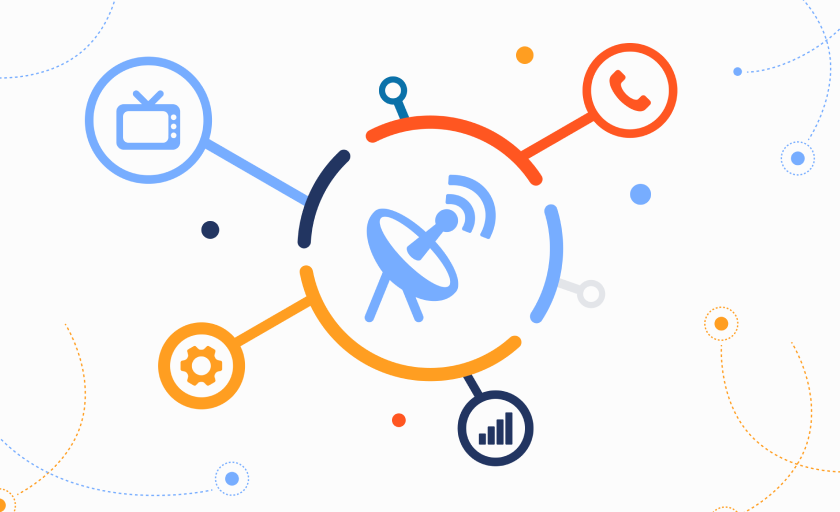Telecommunications has emerged as a trailblazer in the realm of artificial intelligence (AI), solidifying its position at the forefront of technological innovation.
According to a recent GenAI Readiness report study we conducted, the telecommunications industry is the most AI-ready sector for 2025.
Telecom outpaces other industries, including the technology sector, in its preparedness to harness the potential of AI. This remarkable achievement underscores the telco industry’s proactive approach to technology adoption and commitment to staying ahead of the curve.
As the world embraces the power of AI, telecommunications stands as a vanguard, actively pioneering the integration of AI capabilities into its operations and services.
Verizon leads in spearheading AI integration
Verizon Communications stands as the undisputed leader in AI maturity within the telecommunications industry. Verizon secures the top ranking with an impressive AI Maturity Score of 87.7, surpassing its competitors in the sector.
Several factors have contributed to Verizon’s dominance in AI maturity. The company has made strategic investments in AI research and development over the last few years. Additionally, Verizon has leveraged AI to streamline processes, enhance customer experiences, and drive operational efficiencies. By harnessing AI efficiency, Verizon has positioned itself as a frontrunner in the telecommunications landscape, setting a benchmark for other companies.
The report ranks the top 10 telecom companies by AI maturity, which are:
- Verizon
- AT&T
- Orange
- T-Mobile
- Vodafone
- Qwest
- Bell
- Movistar
- Telstra
- DISH Network
The report is built upon our AI Maturity Index — a metric that evaluates the AI readiness and adoption of companies across industries. This index assesses an organization’s AI maturity, considering factors such as investment in AI technologies, integration of AI into business processes, and the development of AI-driven products and services.
The significance of the AI Maturity Index lies in its ability to provide a comprehensive and objective assessment of an organization’s AI capabilities. This metric serves as a valuable benchmark for companies to gauge their AI readiness relative to peers and competitors. By understanding their AI maturity level, businesses can make informed decisions about their AI strategies, investments, and workforce development.
AI adoption trends in telecommunications
According to the AI Maturity Index, telecommunications has the highest average AI Maturity across industries. However, it still only reaches a score of 34/100. This indicates how far many enterprises have to go if they are to be in a position to capitalize on new and emerging AI technologies.
As highlighted by McKinsey & Company’s analysis, Generative AI models can democratize access to powerful capabilities, enabling telecom companies to reshape customer expectations and introduce groundbreaking offerings. This could revitalize profitability and position AI-mature companies as industry leaders.
Companies that have effectively integrated AI technologies stand to gain a significant edge. Critical use cases for GenAI in the telecom sector include conversational chat for customer service, network maintenance, annotation with automation, content creation and localization, and technical sales knowledge management.
Ultimately, the implications of AI maturity in telecommunications extend beyond operational efficiencies and innovation. By embracing AI’s transformative potential, companies can future-proof their businesses, adapt to evolving market dynamics, and stay ahead of the competition in an increasingly digital landscape.
The views expressed in this article belong solely to the author and do not represent The Fast Mode. While information provided in this post is obtained from sources believed by The Fast Mode to be reliable, The Fast Mode is not liable for any losses or damages arising from any information limitations, changes, inaccuracies, misrepresentations, omissions or errors contained therein. The heading is for ease of reference and shall not be deemed to influence the information presented.
Source: www.thefastmode.com
Author: Matt Hogan
Serving as Vice President, Growth Marketing at HG Insights, Hogan joined the company through the acquisition of Intricately, where he was the Vice President of the sales and customer success teams. His data-driven mindset and breadth of experience provides a comprehensive focus on elevating the performance of Go-To-Market organizations across sales, marketing, and customer success.





